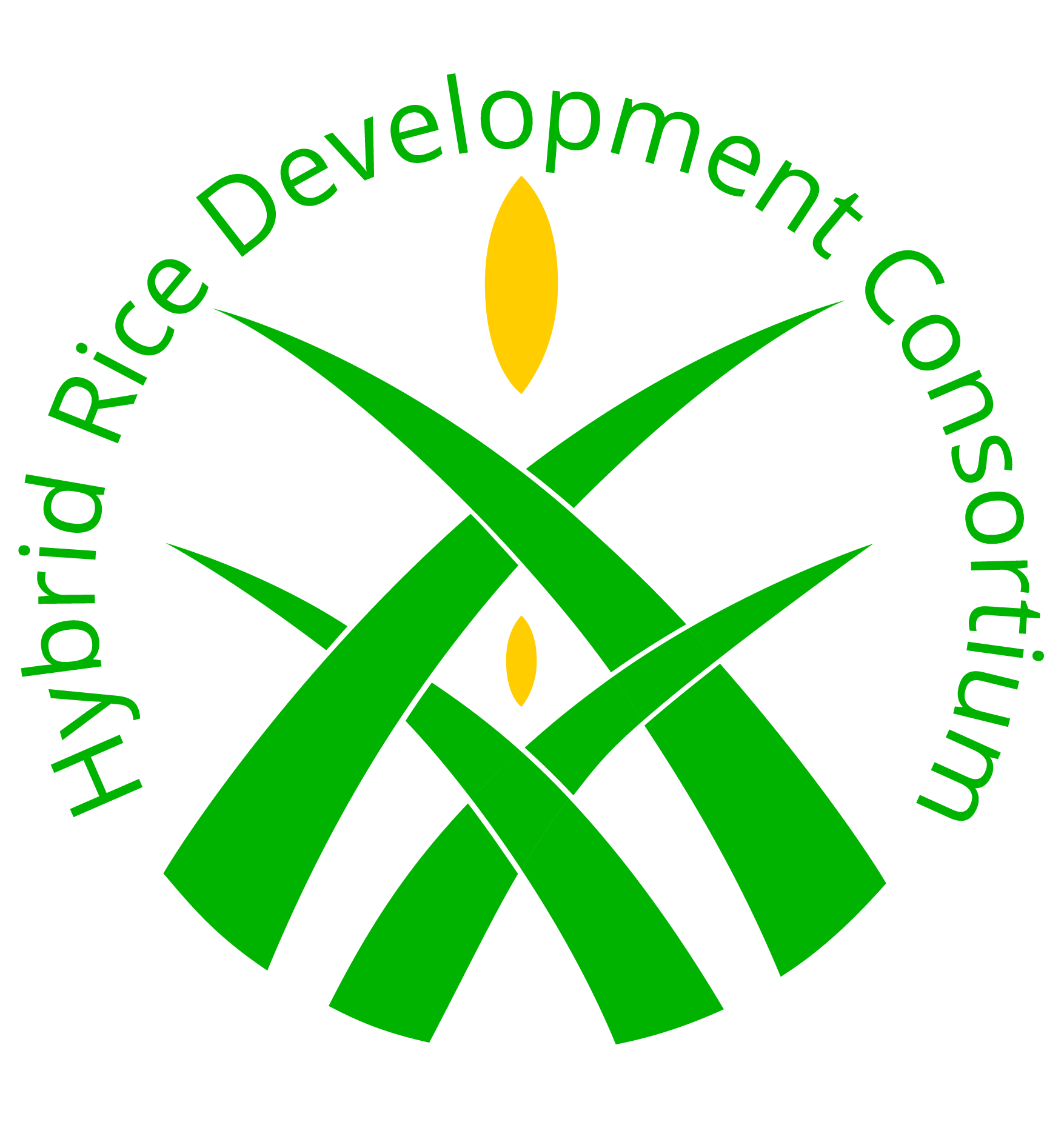- The HRDC will provide a sustainable funding mechanism for accelerating hybrid rice development work in those areas for which the public sector can contribute most. Accelerated research progress will be obtained by fully using IRRI’s resources, resulting in a wider range of traits and parental lines available for public and private sectors. The HRDC will significantly enhance capacity for hybrid rice research and product delivery, while providing services and/or support to the private sector in its product development and delivery that will benefit the general public.
- Farmers will benefit from accelerated access to hybrid rice based technologies, quality seed, and more, better and low cost of rice hybrids, as well as knowledge, and services provided by the private and public sector to increase farm income.
- Public and private sector HRDC members and non-members will have wide access to IRRI hybrid rice germplasm (Annex 2), including selection from early stages breeding nurseries to enhance breeding programs of public and private sector HRDC members (Annex 3). Access to three classes of germplasm materials is differentiated by membership categories. Development and handling costs for these materials are recovered from annual membership fees, flat per-line charges, and in the form of limited non-exclusive licenses. Income from this will solely be used to support the whole range of HRDC activities, including IRRI’s hybrid rice breeding and associated research, multi-location testing in collaboration with public and private sector partners, socioeconomic impact studies, and capacity building.
- Other IRRI germplasm materials that are not listed in Annex 2 and that are not subject to specific restrictions on use will continue to be freely available to any individual or organization for research, breeding, or training for food and agriculture under the terms and conditions of a Standard Material Transfer Agreement (SMTA).
Frequently Asked Questions on SMTA - The HRDC organizes a Multi-location Replicated Yield Trial (MRYT) to assist its members in assessing the performance of their products and to enable seed companies, particularly those without multinational testing capabilities, to generate reliable performance data across a set of test locations (Annex 4). Each member can contribute hybrids for testing, but the maximum number of entries varies by membership category.
- An annual report on new IRRI germplasm materials, performance data, and crop management research results will be released to the HRDC members in conjunction with the annual HRDC meeting. Other public sector members of the HRDC are encouraged to also contribute such information to the annual report.
- Attendance at the annual meeting of the HDRC enables early access to information on traits, parental lines, hybrid performance in different environments, crop statistics, and environmental characterization that is relevant for hybrid rice.
- Improved crop management practices for maximizing the advantages of hybrid rice will be developed and evaluated through cooperation with other IRRI programs and networks.
- The HRDC will publicize science-based information on hybrid rice technology, including better information for policymakers on defining national hybrid rice development strategies.
- Capacity building will be strengthened for both the public and private sectors.
- The HRDC will provide support to major events such as international or regional scientific workshops on hybrid rice.
- In addition to the general guidelines and benefits associated with being a member of the HRDC, members may also develop additional bilateral or multilateral research agreements with IRRI and its partners in specific areas of mutual interest for collaboration.
- NARES and other public sector organizations engaged in hybrid rice research and development will be among the primary beneficiaries of funds generated by the HRDC. Major benefits for NARES will include support for collaborative research in hybrid rice improvement and management, capacity building at all levels, and professional development of scientists involved in hybrid rice research.
- NARES and other public sector members have the right to submit their own germplasm for testing, licensing, and commercialization through the mechanisms established by the HRDC, and to gain all associated benefits. Any, development fees, fees, or other charges paid by private sector members for the intellectual property provided by public sector members will accrue to the developer of the germplasm.
Last Updated ( Tuesday, 13 November 2012 )
